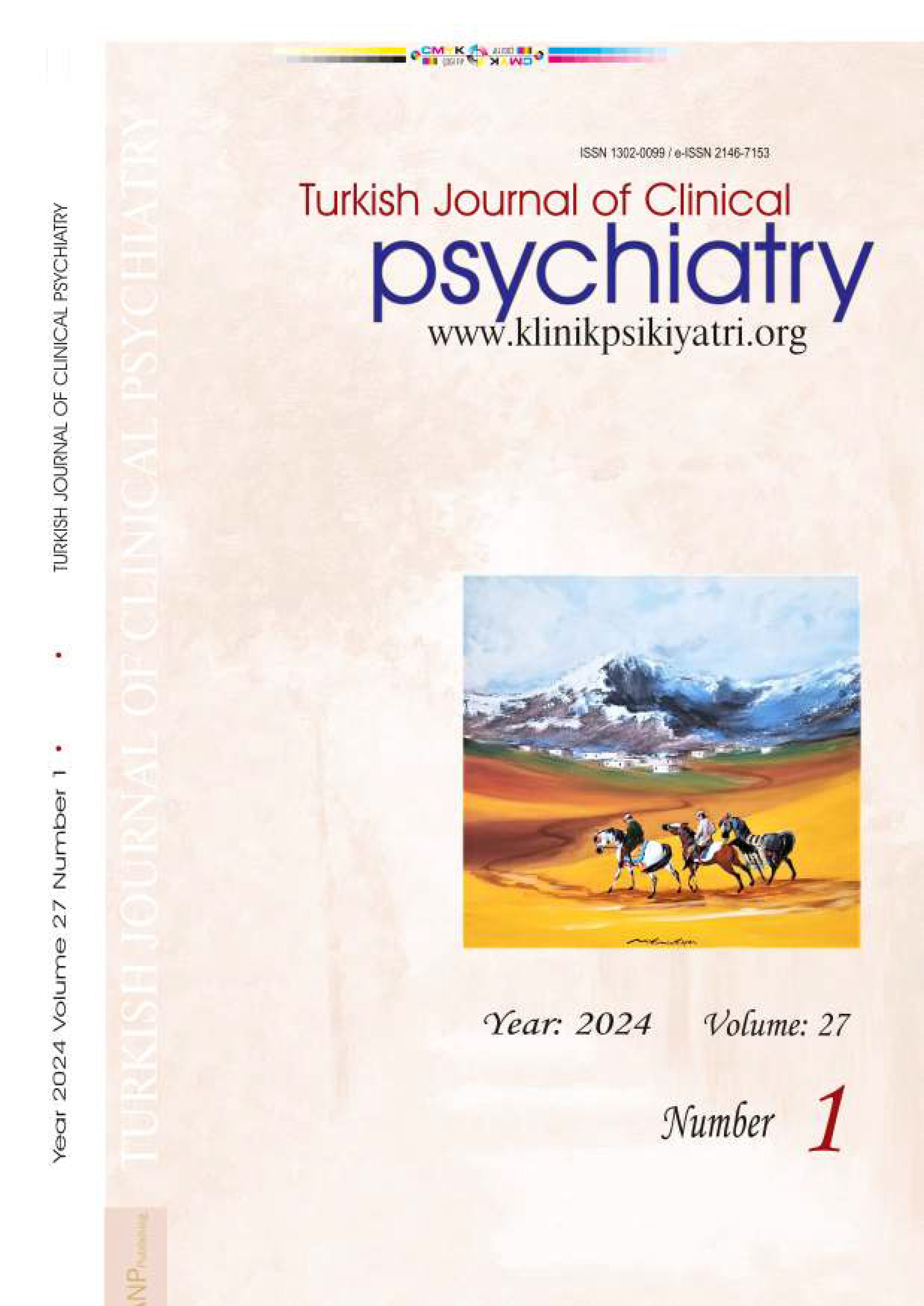
How do traumatic experiences affect relapse in alcohol and substance use disorders?
Ebru Mercandağı1, Ahmet Bulent Yazici2, Esra Yazıcı21Başakşehir Çam and Sakura City Hospital, Istanbul, Turkey2Sakarya University, Medical Faculty, Department of Psychiatry, Sakarya, Turkey
INTRODUCTION: Relapses are very common in Alcohol and Substance Use Disorders (ASUD). Although traumatic experiences are more common in patients with ASUD than in the normal population, its relationship with relapses has not been adequately studied.
METHODS: Fifty-one patients who were hospitalized diagnosed with ASUD according to DSM 5 were included in the study. Sociodemographic Data Form, Impact Of Events Scale-R (IES-R), Hamilton Depression Rating Scale (HAM-D), Hamilton Anxiety Rating Scale (HAM-A), Dissociative Experiences Scale(DES), Addiction Profile Index (API), The Stages of Change Readiness and Treatment Eagerness Scale(SOCRATES) and Traumatic Experiences Checklist(TEC) were applied during their hospitalization. Patients were evaluated for relapse in the 6th month after discharge.
RESULTS: Relapse was observed in 60.8% of the participants. A statistically significant difference was found between the groups with and without relapse in terms of previous psychiatric treatment, number of traumatic events and severity, neglect, emotional and physical abuse, HAM-A and DES scores (p˂0.05). In the logistic regression analysis, it was found that not having previously applied for psychiatric treatment significantly predicted early relapses.
DISCUSSION AND CONCLUSION: According to the study results, the previous psychiatric treatment seems to be associated with lower relapse rates. In contrast, traumatic experiences, anxiety, and dissociative symptoms seem to be associated with higher relapse rates.
Alkol ve madde kullanım bozukluklarında travmatik yaşantılar nüksleri nasıl etkiliyor?
Ebru Mercandağı1, Ahmet Bulent Yazici2, Esra Yazıcı21Başakşehir Çam and Sakura Şehir Hastanesi, Istanbul, Turkiye2Sakarya Üniversitesi, Tıp Fakültesi, Psikiyatri Ana Bilim Dalı, İstanbul; Türkiye
GİRİŞ ve AMAÇ: Alkol ve Madde Kullanım Bozukluklarında (AMKB) nüksler çok yaygındır. AMKB hastalarında travmatik deneyimler normal popülasyona göre daha yaygın olmasına rağmen, relapslarla ilişkisi yeterince çalışılmamıştır.
YÖNTEM ve GEREÇLER: Çalışmaya DSM 5'e göre AMKB tanısı ile yatırılan 51 hasta dahil edildi. Sosyodemografik Veri Formu, Olayların Etkisi Ölçeği-R (OEÖ-R), Hamilton Depresyon Derecelendirme Ölçeği (HAM-D), Hamilton Anksiyete Derecelendirme Ölçeği (HAM-A), Disosiyatif Yaşantılar Ölçeği(DES), Bağımlılık Profil İndeksi (BAPI), Hastaneye yatışları sırasında Değişime Hazırlık Aşamaları ve Tedaviye İsteklilik Ölçeği (SOCRATES) ve Travmatik Deneyimler Kontrol Listesi (TDKL) uygulandı. Hastalar taburculuk sonrası 6. ayda nüksler açısından değerlendirildi.
BULGULAR: Katılımcıların %60, 8’inde nüks görüldü. Nüks olan ve olmayan gruplar arasında önceki psikiyatrik tedavi, travmatik olay sayısı ve şiddeti, ihmal, duygusal ve fiziksel istismar, HAM-A ve DES puanları açısından istatistiksel olarak anlamlı fark bulundu. (p˂0.05). Lojistik regresyon analizinde daha önce psikiyatrik tedaviye başvurmamış olmanın erken dönem yinelemeleri anlamlı olarak yordadığı bulundu.
TARTIŞMA ve SONUÇ: Çalışma sonuçlara göre daha önce psikiyatrik tedaviye başvurmuş olmak daha düşük nüks oranları ile ilişkili görünmektedir. Buna karşılık travmatik deneyimler, anksiyete ve dissosiyatif semptomlar yüksek nüks oranları ile ilişkili gibi görünmektedir.
Corresponding Author: Ahmet Bulent Yazici, Türkiye
Manuscript Language: English
(463 downloaded)




